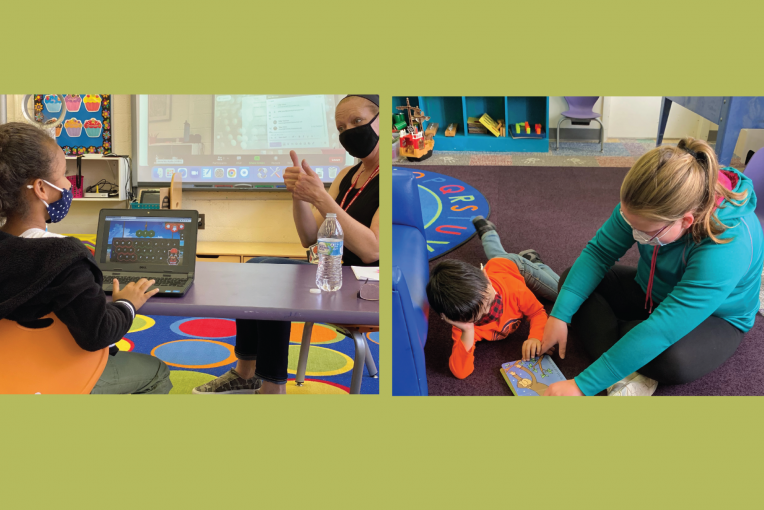For 25 years, the Illinois State University Laboratory Schools have partnered with area school districts to provide comprehensive services for children with low incidence disabilities. Students with special needs in the areas of hearing and vision are served through the Heart of Illinois Low Incidence Association (HILIA).
This program is a collaboration between Regional Office of Education #17, Bloomington School District #87, Livingston County Special Services Unit, Tri-County Special Education Association, McLean County Unit 5 School District and Illinois State University Laboratory Schools. HILIA serves students ages 3-21 in nearly 30 school districts within DeWitt, Livingston, Logan, and McLean counties.
The unique needs of these students are met through the continuum of services offered in their own district’s programs or at the Laboratory Schools. On average, HILIA offers a variety of services to approximately 250 students across the region each year.
How do students receive services?
There are a total of 21 faculty/staff in the HILIA program, 19 of whom work directly with students in various areas of need. To determine what services are needed by the students, faculty associates employed by the Laboratory Schools work collaboratively with each student’s district representatives as part of their Individualized Educational Plan (IEP) team. Some of the faculty associates provide services entirely within partner districts, while others serve these students onsite at the Lab Schools.
Once student needs are identified, these faculty associates provide consultative services to district IEP teams and assist with problem solving, equipment troubleshooting, team meetings, and IEP meetings. Students who require limited support are able to stay within their own school to receive services. Those students who require more significant support come to campus to receive services either at Metcalf School or University High School.
What services are provided?
HILIA faculty associates provide expertise in the areas of assistive technology (in district), as well as deaf/hard of hearing, and vision (at Lab Schools). Key services offered include instruction in braille, sign language, and listening, language and speech. In addition, HILIA can facilitate access to interpreters, a speech-language pathologist, an educational audiologist, and/or certified orientation mobility specialist. Depending on the needs of the student, programming is offered either within the structure of a general education classroom or in small groups with other HILIA students receiving similar support.
Services are definitely not a one-size-fits-all approach, which is why the collaboration of the IEP team is so important to personalize programs for each student. Faculty associates bring extensive expertise to the role, and many are also teaching classes to Illinois State students, thus helping to prepare the next generation of special education professionals.
“Individually, we are dedicated professionals who are truly passionate about educating students with special needs,” said Lisa Kendall, HILIA program coordinator. “Together, we are a team that values collaboration as we partner with a multitude of professionals in the region to best serve our students and families.”
Uninterrupted service
HILIA has continued to offer services during the COVID-19 pandemic and partners with the College of Education’s Department of Special Education to allow its students to participate in clinical experiences. During the pandemic, in-person clinical experiences for most teacher education students were not allowed. However, students completing their clinicals with HILIA were still able to serve their students in the classroom setting. Everyone working in the HILIA program truly works as a team to ensure the best possible learning opportunities for the students they serve.
For inquiries about HILIA programs and services, contact Lisa Kendall at lmkenda@ilstu.edu.

